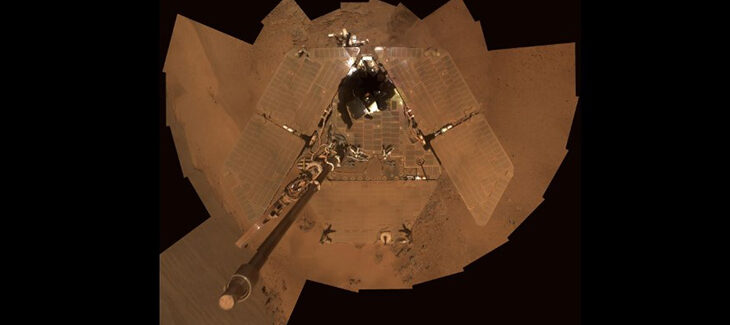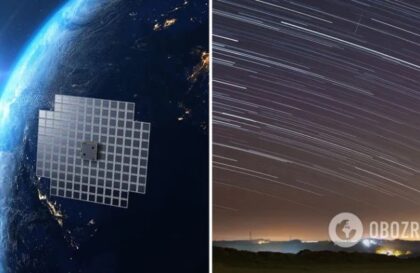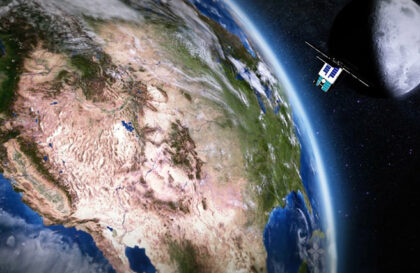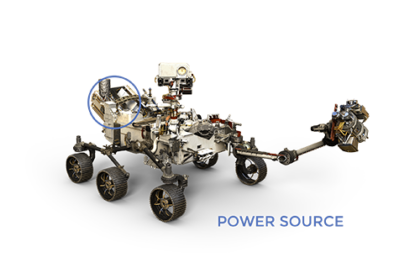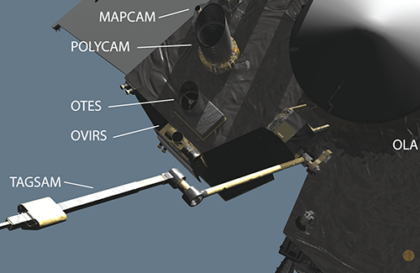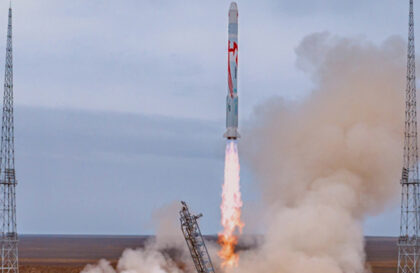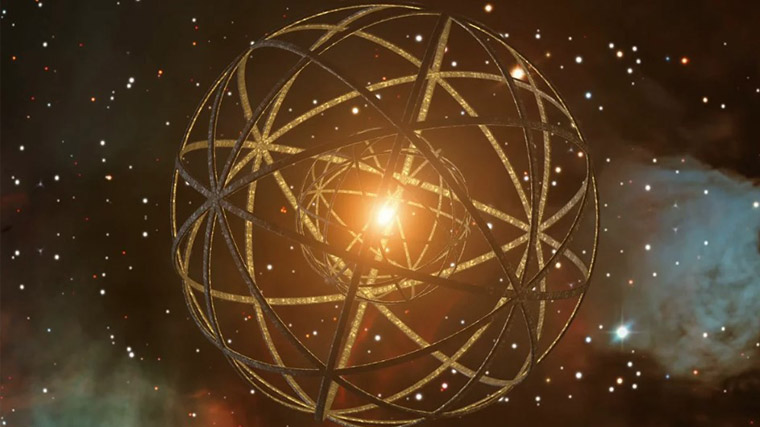Opportunity (MER-B or Mars Exploration Rover – B) is the second rover of NASA’s Mars Exploration Rover project, launched on July 7, 2003, and reached Mars on January 25, 2004. He landed in Eagle Crater three weeks after the arrival of his “brother” Spirit. The rover’s name was given to 9-year-old Sophie Collies from Arizona as part of a competition.
The Mars Reconnaissance Orbiter took this photo of Victoria Crater, about a half-mile in diameter. It was Opportunity’s home for 14 of the first 46 months it spent on Mars. Credit: NASA/JPL-Caltech/University of Arizona/Cornell/Ohio State University
By early 2018, the Opportunity rover had operated 55 times longer than planned, traveling 28.06 miles (45.16 kilometers) and using solar panels for power. In April 2010, the mission became the longest ever conducted on Mars. The previous record belonged to the automatic Martian station Viking 1, which operated from 1976 to 1982.
Credit: Courtesy of Prime Video
Due to a dust storm, the rover entered sleep mode on June 12, 2018, and its communication was never restored. On February 13, 2019, NASA announced the end of the mission.
Comparison with other Mars rovers
Front and center is the flight spare for the first Mars rover, Sojourner, which landed on Mars in 1997 as part of the Mars Pathfinder Project. On the left is a Mars Exploration Rover Project test rover, a working sibling to Spirit and Opportunity, which landed on Mars in 2004. On the right is a Mars Science Laboratory test rover the size of that project’s Mars rover, Curiosity, which is on course for landing on Mars in August 2012. Credit: NASA/JPL-Caltech
| Curiosity | MER | Sojourner | |
| Launch | 2011 | 2003 | 1996 |
| Weight (kg) | 899 | 174 | 10,6 |
| Dimensions (meters, L×W×H) | 3,1 × 2,7 × 2,1 | 1,6 × 2,3 × 1,5 | 0,7 × 0,5 × 0,3 |
| Power (kWh/sol) | 2,5—2,7 | 0,3—0,9 | < 0,1 |
| Scientific instruments | 10 | 5 | 4 |
| Maximum speed (cm/s) | 4 | 5 | 1 |
| Data transfer (MB/day) | 19—31 | 6—25 | < 3,5 |
| Processor performance (instructions per second) | 400 | 20 | 0,1 |
| Memory (MB) | 256 | 128 | 0,5 |
| Estimated landing area (km) | 20×7 | 80×12 | 200×100 |
Wheel size comparison: Sojourner, MER, Curiosity. Credit: NASA/JPL-Caltech
Scientific achievements
Opportunity has proven past water activity on Mars by examining rocks and soil and has also performed astronomical and atmospheric studies.
At a conference on June 7, 2013, the mission team confirmed the discovery of evidence of ancient freshwater based on analysis of the Esperance 6 rock, expanding the understanding of possible conditions for life on Mars in the past. The results provided clear evidence that there was water on Mars.
Earlier data pointed to a liquid similar to sulfuric acid than fresh water.
While traversing on and around the ancient volcanic feature called Home Plate, Spirit took many images of finely layered and more frothy-looking volcanic rocks. Credit: NASA/JPL-Caltech/Cornell University
Oppy’s panoramic camera gathered this mosaic in 2014 of Wdowiak Ridge and the rover’s tracks to the right. This is about 70 degrees from north/northwest to east/northeast, showing the 500-feet ridge that rises 40 feet tall. Credit: NASA/JPL-Caltech/Cornell Univ./Arizona State Univ.
Banner image: NASA/JPL-Caltech
Image credit:
https://edition.cnn.com
https://mars.nasa.gov
